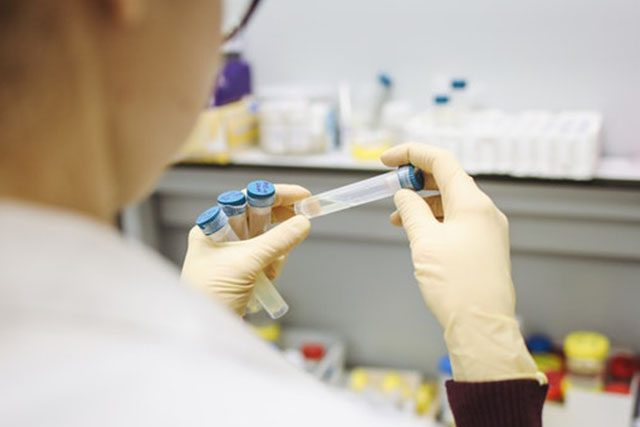The government is eyeing to start the mass testing of persons suspected of having novel coronavirus in the coming week.
Presidential Peace Adviser Carlito Galvez Jr., the chief implementer of the national action plan against COVID-19, said that persons under investigation (PUI) and under monitoring (PUM) would be tested once the laboratories are accredited by the health department.
“We are also determined to fast track the accreditation of subnational laboratories so we can start the massive testing of PUIs and PUMs,” Galvez said in a statement.
He said that the National Task Force on COVID-19 has asked the Department of Health to expedite the accreditation of more hospitals to boost their testing capacity.
RELATED: Gov’t to ramp up COVID-19 test capacity with accreditation of more testing centers, kits
Currently, there are eight health facilities capable of conducting COVID-19 tests, according to Inter-agency task force spokesperson and Cabinet Secretary Karlo Nograles. These are the following:
- Research Institute for Tropical Medicine
- Baguio General Hospital and Medical Center
- San Lazaro Hospital
- Vicente Sotto Memorial Medical Center
- Southern Philippines Medical Center
- University of the Philippines-National Institutes of Health
- Western Visayas Medical Center
- Lung Center of the Philippines
April 14 is the target date for mass testing that will allow the task force to “identify the COVID-19 carriers, isolate and treat them,” Galvez said.
This comes two days after the enhanced community quarantine period but the IATF’s technical working group is already studying plans to extend it.
Two lawmakers have already recommended for the quarantine extension. Filipino genomic data scientist who said that the country needs “a few more months to completely flatten the curve” is also in favor of the quarantine period’s extension.
‘Test, test, test’
News of mass testing elated Filipinos who have long clamored for the initiative in order to fully determine the number of suspected COVID-19 cases in the country and isolate them for treatment.
Among those who shared their enthusiasm were comedienne and social media personality Ethel Booba, former solicitor general Florin Hilbay and human rights lawyer Chel Diokno.
“Magandang balita. Ganitong mga konkretong plano ang gustong makita ng mga kababayan natin. Patuloy tayong magbabantay para masigurong sa mga ganitong solusyon ginagamit ang 275B emergency fund,” the lawyer said on Twitter.
Opposition Sen. Risa Hontiveros thanked the government for “listening” and reiterated that mass testing “will save lives.”
Finally,our urgent call for #MassTestingNowPH will start 14 Ap! Salamat sa pakikinig!
To defeat COVID-19 outbreak,we need to isolate more cases,& respond to their treatment & care.
Uulitin ko:mass testing WILL SAVE LIVES. We can do this,Pinas!
https://t.co/GzItpAdP26
— risa hontiveros (@risahontiveros) April 3, 2020
Despite the calls answered, other online users expressed their disappointment, saying that the initiative could be “too late.” Others said that the government’s move could’ve been made earlier “to avoid the spread of the virus and to treat the disease as early as possible.”
The DOH previously said that the Philippines cannot handle COVID-19 mass testing yet due to the limited supply of testing kits and laboratories capable of running tests.
The health agency is accrediting more health facilities. They are also increasing the production and distribution of locally-made detection kits by the University of the Philippines.
Countries such as Singapore, China and South Korea have also donated testing kits to the Philippines.
Last month, concerned members of the social sector and some officials called on the DOH to conduct a large-scale testing of the suspected cases in the country amid the rising number of infected persons and reports of PUIs dying without even knowing their status.
Some of the groups’ suggestions include training more health experts for additional manpower and testing frontliners, communities with confirmed cases and individuals displaying symptoms.
The World Health Organization previously said that the best way to slow down the pandemic is to conduct testing of “all suspected cases.”
WHO director general Tedros Adhanom Ghebreyesus said that cases cannot be isolated and the chain of infection wouldn’t stop if there are no massive testing initiatives.
“You can’t fight a virus if you don’t know where it is. Find, isolate, test and treat every case to break the chains of transmission. Every case we find and treat limits the expansion of the disease,” he said in a press conference.
The Philippines has 2,633 cases of COVID-19 as of writing. A total of 107 have died while 51 have recovered from the viral disease.











